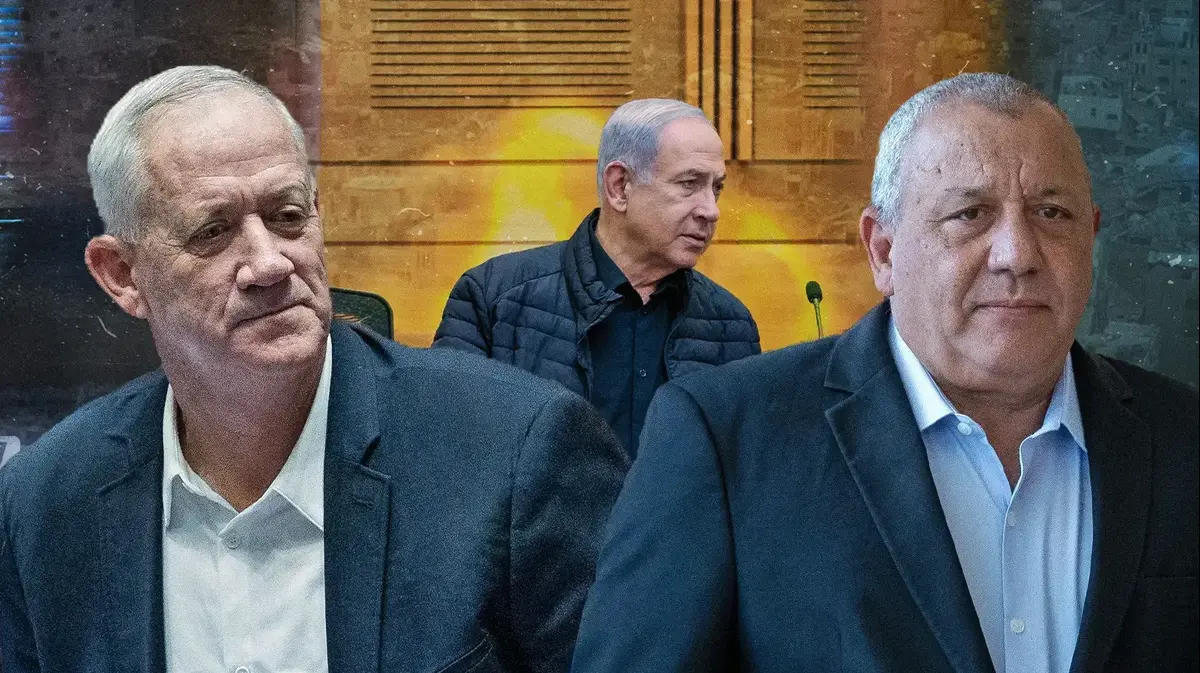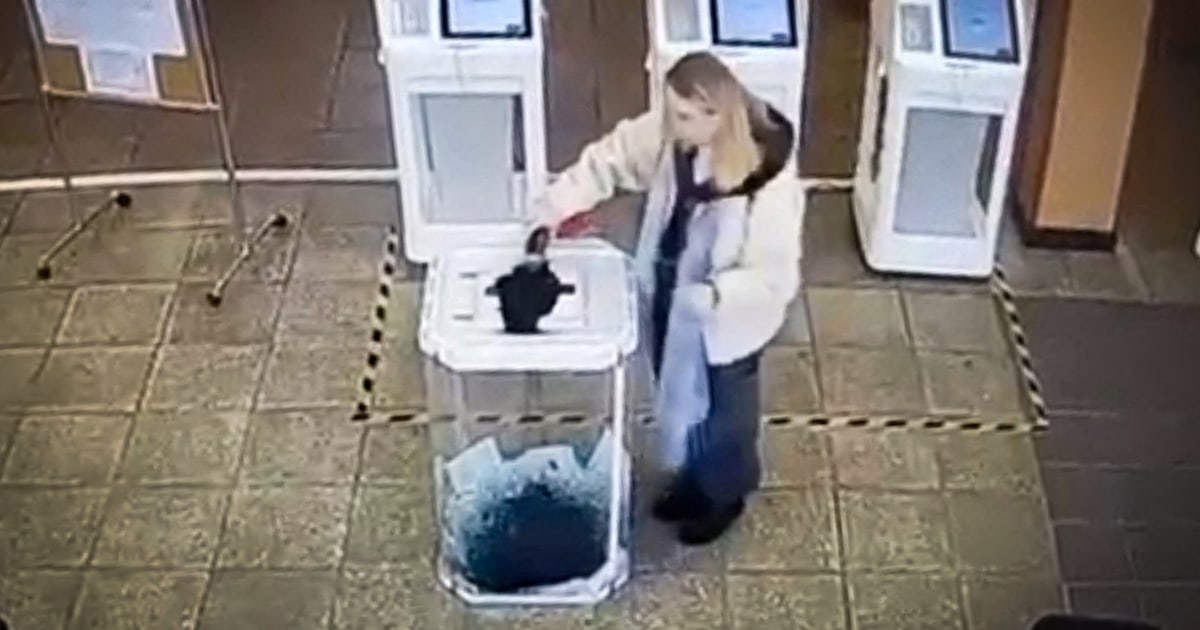Last week, pro-Ukrainian fighters crossed the border into southwestern Russia, triggering two days of the heaviest fighting on Russian soil in 15 months of war.
However, Russian President Vladimir Putin completely ignored the matter in public.
He handed out medals, met with the Patriarch of the Russian Orthodox Church, hosted friendly foreign leaders and held a televised chat with a Russian judge about how Ukraine was not a real country.
An aerial view of the destruction in Bakhmut, Ukraine, photographed with a drone while integrated into the Ukrainian army's 93rd Mechanized Brigade, May 19, 2023. (Tyler Hicks/The New York Times)
In managing Russia's biggest war in generations, Putin increasingly looks like a commander-in-chief in absentia:
in public, he says almost nothing about the course of the war and shows little concern for Russia's setbacks.
Russian military vehicles destroyed at a makeshift open-air museum in Kharkiv, Ukraine, May 26, 2023. (Nicole Tung/The New York Times)
Instead, he is telegraphing more clearly than ever that his strategy is to wait for Ukraine and the West, and that he believes he can win by exhausting his enemies.
"There is no need to get your hopes up," said Natalia Zubarevich, an expert on Russia's social and economic development at Moscow State University.
According to her, Putin has laid the internal foundations for maintaining the war for "a long, long, long, long time."
But while Western analysts and officials believe Putin's Russia has the potential to keep fighting, its military, economic and political room for maneuver has narrowed, presenting obstacles to pursuing a protracted war.
Even as Putin refers to the fighting as distant "tragic events," war continues to strike at home, with growing fissures in the military leadership, unrest among Russia's elite and worrying signs for the economy as the West vows to further detach itself from Russian energy.
Remnants of ammunition collected from Russian shelling of the northeastern Ukrainian city of Kharkiv, May 23, 2023. (Finbarr O'Reilly/The New York Times)
On the battlefield, Russia's ability to go on the offensive has been hampered by ammunition depletion and the month-long battle for the eastern Ukrainian city of Bakhmut, which claimed the lives of thousands of soldiers.
Yevgeny Prigozhin, the leader of the Wagner mercenary group that led the assault on Bakhmut, said he was beginning to withdraw his soldiers from the city while unleashing one profane tirade after another aimed at Russian elites allied with the Kremlin.
To mount a major new offensive, Western officials and analysts say Putin would need to find new sources of ammunition and impose a second, politically risky military draft to replenish his depleted troops.
Still, U.S. Director of National Intelligence Avril D. Haines told Congress this month that the chances of Putin making any concessions in this year's talks were "slim" unless he sensed a domestic political threat.
Western officials also remain concerned about the possibility of his resort to nuclear weapons, but reckoning the risk is greater if Putin faces a catastrophic defeat that threatens his stay in power.
At home, the Russian economy has proven flexible enough to adapt to Western sanctions, while government reserves have been sufficient to finance increased military spending and social benefits.
But the longer the war drags on — especially if oil prices fall — the more likely it is that the Kremlin will be forced to make tough choices: cut public spending or let inflation rise.
Politically, some researchers argue that public support for the war in Russia is broad but superficial, capable of changing rapidly in response to unforeseen events.
Cross-border raids last week brought the war to Russia in a way not seen before, stirring unease among military bloggers, who have many followers.
In addition, Prigozhin has become a populist politician taking on top Russian officials, and this week launched a harsh attack on the strategy of waiting for the West.
In an hour-long video interview with a Russian blogger, Prigozhin described an unlikely "optimistic scenario" in which "Europe and the United States get tired of the Ukrainian conflict, China sits everyone at the negotiating table, we agree that everything we have already taken is ours."
The most likely scenario, Prigozhin said, is that Ukraine pushes Russian troops back to prewar lines and threatens the Crimean peninsula, the crown jewel among Putin's Ukrainian land grabs.
Western analysts and officials doubt Ukraine's next counteroffensive can deliver a coup de grace.
At the same time, they claim that Russia's ability to wage war is steadily degrading, as evidenced by the tens of thousands of casualties at Bakhmut and the sharp decline in the number of shells Russian forces fire per day in eastern Ukraine compared to the height of the battle last year.
"It's not that the Russians are suddenly going to stop being able to wage war," said Max Bergmann, a former State Department official now at the Center for Strategic and International Studies in Washington.
"The question is whether they can continue to fight it with some kind of intensity."
But Putin is not betraying any public sense of urgency.
He remains isolated in his pandemic-era cocoon, forcing Russians who meet him to quarantine for days.
(A cosmonaut honored at a Kremlin medal ceremony Tuesday began his speech with, "I'm sorry, we've been a week in silence in isolation.")
Putin rarely goes into detail about the course of the war, even as he participates in lengthy televised meetings on issues such as interethnic relations.
So banal was the discussion that an Armenian civic leader told Putin that his group had sent "300,000 chocolate bars with raisins and nuts" to eastern Ukraine.
Instead, he often speaks of the war he ordered as a phenomenon beyond his control.
In televised remarks to businessmen on Friday, he referred to "today's tragic events."
His silence on the dramatic two-day incursion into Russia this week was a change from his reaction to a minor attack of this kind in March, when he called off a trip and denounced the episode as a "terrorist" attack.
When he talks about Ukraine, his comments are loaded with distorted history, as if he wants to tell the world that, whatever happens on the ground, Russia is destined to control the country.
On Tuesday, the Kremlin released footage of Putin's meeting with Valery Zorkin, head of Russia's Constitutional Court, who was carrying a copy of a seventeenth-century French map of Europe.
"Zorkin tells Putin that Ukraine does not appear on the map.
Putin then falsely claims that, before the Soviet Union was formed, "there was never any Ukraine in the history of mankind."
Some Russian officials are already eyeing next year's U.S. presidential election, hinting that a Republican victory could turn the tables.
Dmitry Medvedev, a former Russian president and vice chairman of Putin's Security Council, declared last week that "the main thing" was that President Joe Biden not be re-elected.
President Donald Trump, the frontrunner for the Republican presidential nomination, "is a good guy," Medvedev said, and "historically it's always been easier to work with Republicans."
But there are risks in Putin's wait-and-see approach beyond the possibility of a battlefield breakthrough by Ukraine.
Tatiana Stanovaya, a fellow at the Carnegie Russia Eurasia Center, argues that Putin's "tactic of inaction" could increase the influence of hardliners like Prigozhin.
"Russian elites can see defeatism in inaction," he wrote this month.
"Putin is already struggling to explain what exactly he is waiting for."
The durability of Russian public support for the war – as well as the economic stability that helps prop it up – is far from clear.
But some researchers and U.S. officials believe cracks have already begun to appear in pro-war sentiment because of the large number of casualties.
A recent report by a group of Russian sociologists, based on dozens of in-depth interviews, argues that Russians see war as "a natural disaster" in the face of which they can do nothing, rather than as something they are firmly convinced is right.
"This support is not based on fundamental political positions or ideological opinions," says Sasha Kappinen, one of the report's authors, who uses a pseudonym for security reasons because she works at a Russian university.
"It's not a stable support."
Russia has spent heavily to placate the general public since the war began, increasing welfare and easing the burden on small businesses.
Its economy has adapted to sanctions, benefiting from the many countries outside North America and Western Europe that continue to trade apace with Russia.
Zubarevich, an expert on economic development in Moscow, said the government has the capacity to maintain the current pace of spending at least until presidential elections next March, in which Putin, 70, is expected to run for a fifth term.
But a drop in the price of oil could force the government to cut spending on things like infrastructure.
"The two sacred cows are state defense procurement and support for low-income groups and pensioners," he said, referring to the need to satisfy key constituencies.
"They will stay in place as long as possible."
At the same time, analysts and Russians who know Putin continue to regard him as fundamentally flexible and opportunistic, a man who would likely accept a freeze on fighting if offered, even as he prepares to keep fighting for years.
As a result, well-connected people in Moscow see an unpredictable future as they prepare for a long war.
"Putin's spectrum of options is quite broad," said a prominent Moscow businessman, "from making a ceasefire today to fighting a hundred-year war."
c.2023 The New York Times Company













